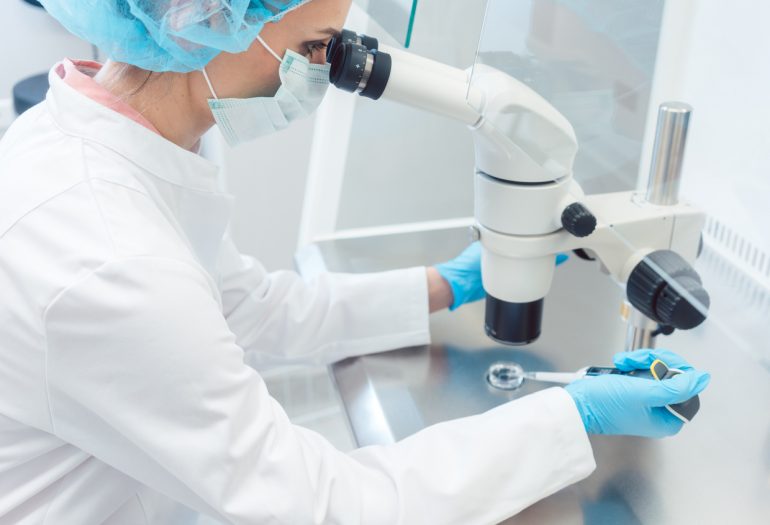What Is Preimplantation Genetic Diagnosis (PGD)
Modern reproductive technologies have evolved and progressed for the last decades which has given a chance for either single people or those in a partnership to have children. In addition to in-vitro fertilization there are now other techniques that improve the quality and allow us to broaden the knowledge about the biological material. One of such techniques is Preimplantation Genetic Diagnosis (PGD) which was first used in 1989 by the American geneticist called Alan Handyside. His aim was to check the presence of a specific gene which becomes a reason for the occurrence of cystic fibrosis. Modern PGD allows to test much more mutations.
What is Preimplantion Genetic Diagnosis?
/pgd.jpg)
Preimplantation Genetic Diagnosis is the genetic screening of embryos that were created by the means of IVF. This test is different from the prenatal screenings as it is done when woman isn’t pregnant yet. The main goal of this procedure is the genetic testing of embryos.
It allows to check if the embryo is healthy on a stage before the actual transfer. The development of PGD has become a great step forward in genetics. It makes possible to avoid transferring unhealthy embryo in the uterus in the first place and to prevent pregnancy terminations after detecting some kind of abnormalities when the woman is already carrying a baby.
The list of genetic diseases that can be detected by means of PGD is quite extensive and includes:
- Fragile X Syndrome;
- Achondroplasia;
- Beta Thalassemia;
- Cystic Fibrosis;
- Huntington Disease;
- Marfan Syndrome;
- Sickle Cell, etc.
In addition, patients receive the information about gender of embryos as some diseases occur only in males or females.
Who should consider PGD?
/process-of-pgd-for-gender-selection.png)
PGD has indications as any other medical procedure and should be recommended by a doctor. Before starting the IVF, couple can inquire about the necessity of PGD, however, in most cases, fertility doctors point it out the indications or their absence at the very beginning. The most common reason for performing the test is the significant risk of passing the hereditary diseases to a future baby. If one of the partners is aware of his/hers genetic disorders, PGD would become an only way to make sure their baby won’t have it too.
Another widespread purpose of PGD is the advance age of one or both partners. The chance of giving a birth to a healthy baby decreases with age and doctors may suggest re-insuring. Some parents consider it in case they have already given birth to a baby with a chromosomal abnormality or they have had such incidences in their family medical history.
PGD is often helpful for couples with several miscarriages in a medical history or those who had at least 2 unsuccessful IVF cycles. Embryos obtained during these attempts have satisfactory quality, judging from what can be seen with an eye of an embryologist. The reason is often genetic abnormalities in these embryos. Doctors may also offer patients PGD in case of infertility of an unknown nature, male factor, etc.
What are the PGD steps during an IVF cycle?
The first step is the creation of embryos themselves: the medical team and patients are waiting for 5 days to see which embryos would eventually become blastocysts. Only 5 day embryos of a good quality can be tested. Most of the IVF clinics use the Gardner’s classification to evaluate the quality and it consists of three grades that depend on certain factors. Embryos of a poor quality cannot be genetically tested, vitrified or transferred as it would give no result.
The following step is the trophectoderm biopsy during which embryologists separate several cells from the outer layer of an embryo. It will develop into placenta during the pregnancy so no damage to fetus is done. These cells are then sent to a specially equipped laboratory for the actual testing and embryos are vitrified and cryostored in a liquid nitrogen.
Who should have PGD or PGS?
PGD is often used to detect single-gene disorders and when patients know which type of abnormality they are looking for. Nowadays, PGD offer a wide range of abnormalities they are able to detect. PGS, cannot be used to verify the presence of the specific disease. In its turn, this test makes it possible to check the number of chromosomes and is frequently opted due to recurrent miscarriages. An embryo with the wrong number of chromosomes has a little chance to implant and even if it does, there is a high chance of having a baby with genetic disease.
How are embryos chosen for transfer?
After getting information about embryos from the laboratory, the next step will be the preparation for the embryo transfer and the transfer itself. The medical staff mainly recommends transferring one embryo of the best quality. First, the strongest embryo is used and then all other ones in descending order.
Those embryos which have proven to be unhealthy are destroyed because they cannot be transferred or donated to any other patient. The destruction is only done on condition of a written application from patients by means of thermal shock. Please, note, that the legislation differs from country to country in this regard.
Where does the PGD testing occur?
Cells, which were taken from embryos are sent to laboratory. There are special laboratories with equipment that allows performing genetic screenings on embryos. Not every clinic has its own laboratory to perform PGD and most of the medical institutions cooperate with them to offer their patients PGD. What is important is the duration, patients have to take into consideration that the material is being processed for at least one month, depending on the lab.
Generally, PGD is not and option for every couple and if a couple is young or donor material is used, doctors may not suggest proceeding with PGD due to the low risk of detecting any kind of abnormalities.

Surrogacy in Ukraine, legal aspects
Infertility treatment by using the services of a surrogate mother is now widely applied in countries where surrogacy...

Should I freeze my eggs
Egg freezing is the set of medical procedures aimed at the preservation of a woman`s fertility. It has already...

What are Surrogacy Contracts
Surrogacy programs require different documents to be signed. This is done to make all the procedures legal and...

What is Gestational Surrogacy and How it Works
Gestational type of surrogacy is considered to be a relatively new method to treat infertility. The 1st baby was...

How Can I Become a Surrogate Mother
The number of couples who start looking at their surrogacy opportunities in Ukraine increases with every year due...

The Egg Donor Process: What to Expect
Becoming an egg donor is both a thrilling experience and big responsibility for many women. It’s a great...

How To Evaluate a Surrogacy Agency’s Success
The surrogacy process is a challenging and exciting journey for intended parents. This procedure requires a lot...

10 Common Questions About Egg Donation
The process of egg donation raises a lot of questions both from recipients and from donors. This procedure is intended...

Fertility after a miscarriage
Fertility is the ability of the female or male body to conceive and give birth to a child. Woman’s fertility...

Difference between primary and secondary infertility
It is only possible to diagnose infertility or sterility, in the case when at the beneficial circumstances, regular...

Signs of preterm labor
Preterm labor poses a threat to the baby’s life and health; though, it could be prevented, if you know about...

Secondary infertility
Infertility is the disorder of the reproductive system, when for a year or more, the attempts to get pregnant are...

Effect of smoking on fertility
Smoking is one of the most widespread bad habits. We have been told about the harmful effect of nicotine starting...

Intrauterine insemination
Artificial insemination is nothing unusual in the modern world. It has been developing the most active in the last...

Alcohol and fertility
Alcohol addiction is one of the most common problems in the modern world. This problem becomes more and more widespread...

Relationship between stress and infertility
From year to year, scientists find more proves confirming the interconnection between stress, depression-related...

Celebrities who resorted to surrogacy
Surrogacy is one of the assisted reproductive technologies. The surrogate mother carries the baby that isn’t...

Endometriosis and IVF
Women who refer to a gynecologist because they can’t get conceive for a long time or who want to try IVF...
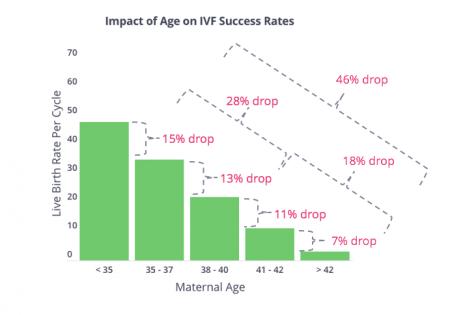
IVF success rates
In vitro fertilization (IVF) is the most efficient and commonly applied type of ART. It is undoubtedly the most...
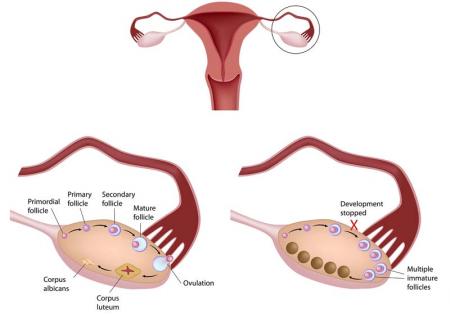
PCOS and IVF
There are many reasons why woman’s eggs may be of poor quality or quantity. Most common causes are associated...

Pregnancy with multiples
Couples planning their parenthood with fertility clinic assistance often inquire about how high their chances are...

What is fertility calculator?
The advance of modern technologies presents a number of opportunities for women to take charge of their fertility....

Male infertility symptoms
The modern pace of life is extremely fast and stressful. We need to keep up with so many things and follow such...
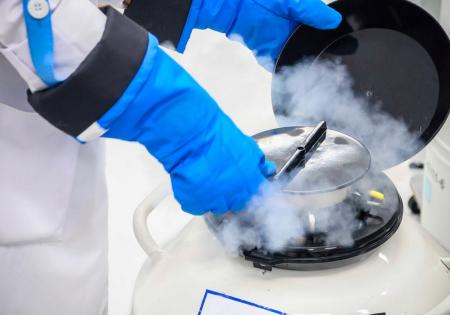
Differences between fresh and vitrified eggs
Many patients who resort for assisted reproduction technologies, like IVF, surrogacy or PGD are often baffled with...

Does age matter for fertility?
How does our age affect our fertility? Age is a crucial factor affecting male and female fertility. The modern...

Egg donation in Ukraine
Egg donation in Ukraine is a trending reproductive service that is becoming more and more popular. For some patients...
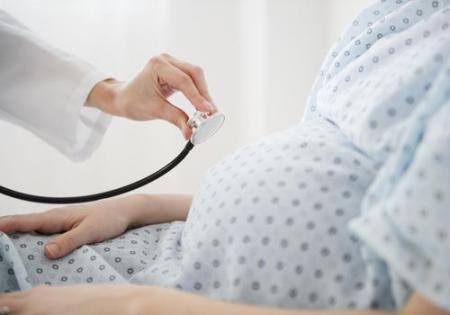
Motherhood after 40
The modern world provides women with so many great opportunities but at the same time, it may cause a lot of disappointments....

Why do people choose pregnancy in Ukraine
The modern world presents us with so many great opportunities, the development of the state-of-art technologies...
0817144241_s.jpg)
What is medical tourism?
The globalization of the modern world presents us with a wide range of opportunities for work, recreation,...

Foods that increase fertility
The modern pace of life is extremely demanding: we need to work much, achieve much, and we have no right to fall...

Poor ovarian reserve and IVF
Women who plan to get pregnant or have faced some difficulties with fertility usually refer to reproductive clinics...
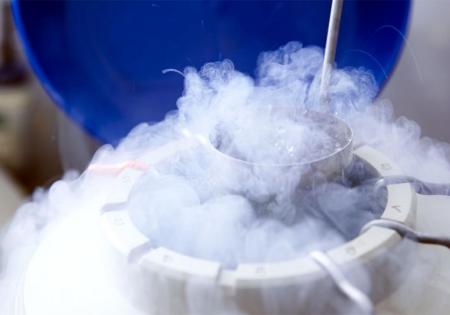
Egg freezing
Egg freezing, also known as the oocyte preservation is a method of woman’s fertility preservation that allows...

How to choose the perfect donor for you
Here are some tips how to choose the perfect donor for you: It goes without saying that your potential...

Agency’s clients need a professional legal support
Anastasia Herman law office provides the full range of effective assistance within Surrogacy, Family and Fertility...

TOP 3 common myths about pregnancy
The mother’s beauty According to a myth, girls steal away their mothers’ beauty. Of course, the truth...

Getting ready for your first visit to a fertility clinic
Take some time to think over and prepare the following information before your visit: List any medications,...
_s.png)
Konsultacja specjalisty z niepłodności Kraków
Jak od dawna starasz się zostać rodzicem, ale tak i nie uzyskałeś dwie upragnione kreski na teście? Ilu lekarzy...
Contact US
Complete the form below to start your journey right now
